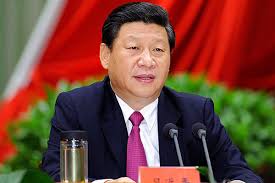
US Companies and those in China have signed business agreements worth over 250 billion dollars in areas such as energy, manufacturing and aviation during U.S. President Donald Trump’s state visit to Beijing. Trump and Chinese President Xi Jinping oversaw the signing of commercial contracts and investment agreements during a meeting with business delegates, where Trump also spoke of reducing the U.S. trade deficit with China.
“We must immediately address the unfair trade practices that drive this deficit. We really have to look at access, forced technology transfer, and the theft of intellectual property, which just by in and of itself is costing the U.S. and its companies at least $300 billion a year. The U.S.-China trade relationship right now unfortunately is a very unfair and one-sided one.
“But I don’t blame China, after all, who can blame a country for taking advantage of another country for the benefit of its citizens,’’ Trump said, blaming instead past U.S. administrations for allowing the trade imbalance to persist. Among those signing business agreements with their Chinese counterparts as Trump and Xi looked on were executives from Goldman Sachs, Boeing and General Motors, as well as the governor of Alaska.
In total, 15 documents were signed in areas such as shale gas, liquefied natural gas, industrial cooperation and aircraft engines.
Trump and Xi had previously had a bilateral meeting during which they discussed trade as well as regional security and the nuclear threat from North Korea. “China-U.S. relations are at a new historic starting point,’’Xi said. Trump agreed that “there can be no more important subject than China-U.S. relations,” while pressing Xi to do more to rein in North Korea. “China can fix this problem easily and quickly,” Trump said. He, however, calling on Xi to work on it very hard.
“I know one thing about your president, if he works on it hard, it’ll get done,” Trump said, adding that time is quickly running out, and we have to act fast.
Trump arrived in Beijing on Wednesday as part of a five-nation Asia tour to strengthen alliances, promote trade and call on governments to isolate North Korea. Before China, he visited Japan and South Korea.

